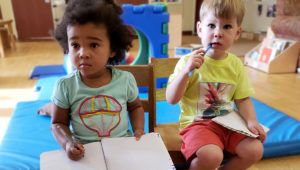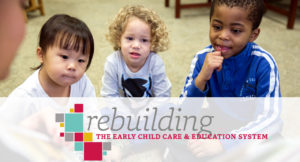
A survey taken by early-childhood professionals demonstrated that educators, on average, are moderately racially conscious, meaning they understand that children of color experience racism. The "Don't Look Away" book study sought to address issues of bias and increase awareness around anti-bias practices within the classroom. This white paper research shows an increase in posttest data from the baseline after participants completed the study.









